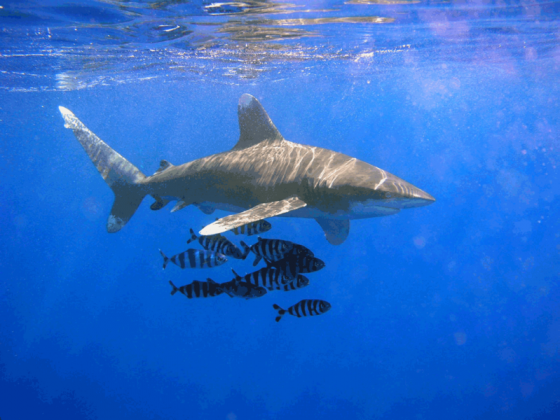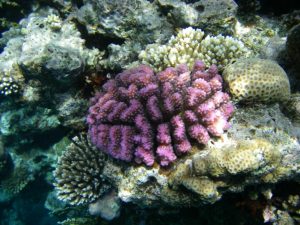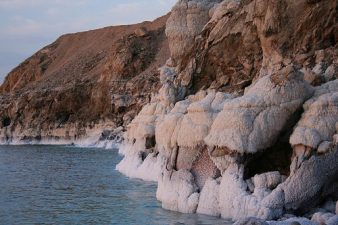 Authorities erroneously killed two sharks not responsible for the Red Sea attacks last week
Authorities erroneously killed two sharks not responsible for the Red Sea attacks last week
Last week off the coast of Egypt’s tourist resort town Sharm al-Sheikh, three snorkellers were attacked by an Oceanic White Tip shark. Scientists claimed that such attacks are extremely rare for this species and sought to investigate the cause of its aberrant behavior.
Officials also promised that the shark would be captured and then released away from tourist areas in the Gulf of Suez. Instead, Egypt’s park authorities killed two sharks – one Mako and one Oceanic White Tip, neither of which is believed to be the shark responsible for the attacks.
Ostensibly to pacify tourists after three Russian tourists were badly injured last week – one person lost a hand and the others sustained leg and back injuries – authorities took drastic retributive measures.
A twelve member team tracked down and killed two sharks listed as vulnerable on the International Union for the Conservation of Nature (IUCN) Red list of threatened species.
Photographs taken before the attacks and compared to images of the two captured sharks reveal that the authorities killed the wrong shark. The White Tip responsible for the killings is still “at large.”
Neither the Chamber of Diving and Watersports (CDWS) or The Hurghada Enviornmental Protection and Conservation Association (HEPCA) approve of how the matter was handled.
This is part of a statement released by HEPCA following the authorities’ action:
…both organisations would have preferred a more graded response to the unfortunate events. No attacks on divers have been reported from any of the dive sites in the Egyptian Red Sea, making the closure of all diving activities an unnecessary and extreme measure. While we fully appreciate the difficult and sensitive situation after such an unusual string of attacks for the tourism sector, the random catching and killing of large oceanic sharks in the area does not help to mitigate the problem; additionally it sends the wrong message that people entering the water are generally in danger of being attacked by sharks.
Why the shark attacked is still uncertain. Some speculate that Yemenese fishermen who poach the sharks for their fins – a delicacy in Japan – may have contributed to this strange behavior, while others suggest that ecosystem imbalance could may make sharks desperate for new food sources.
While we are concerned for the safety of tourists on the Sinai peninsula, we hope that the authorities will refrain from haphazard culling and opt instead to revert to the original plan to relocate the shark responsible for the attacks.
More on the Red Sea:
Egypt Eco-Group HEPCA Reports Red Sea Spill is Capped
image via wikipedia



